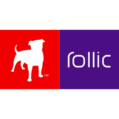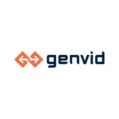Live Services & Expansion: Q&A with Bernard Kim, Zynga
by Mathew Broughton on 12th Aug 2020 in News


Following company-record earnings for the second quarter, along with the USD$168m (£128m) acquisition of hyper-casual studio Rollic, Bernard Kim, President of Publishing at Zynga, speaks with TheGamingEconomy to discuss how the San Fransisco-based firm will maintain its growth over the course of the upcoming months.
With daily active users returning to levels last seen in Q1, how does Zynga plan on retaining the momentum in player engagement seen throughout the height of the Covid-19 pandemic?
As our results showed, we had the highest quarterly revenue and bookings in Zynga history, as well as the best cash flow that we've had in eight-plus years. We've seen great opportunities with regards to bolstering our live-service games in the marketplace with engagement features that players will love. We're really proud of the way that the company operated in an unprecedented and surreal time. However, it's important that we retain players within our network.

Bernard Kim, President of Publishing, Zynga
Our goal is for casual gamers to add gaming into their daily routine. Some folks will jump into Instagram, Tik Tok, or Facebook, first thing in the morning when they wake up. Playing a word in Words with Friends could add into that repertoire, or trying a brand new hyper-casual game from Rollic. The engagement that we've seen across some of our products has been compelling, we've seen chat increase by 400% in one of our titles throughout COVID. It's really nice to see the social aspect of our games shine through.
With a loss recorded for the sixth consecutive quarter, is Zynga under pressure to record profit within the next two-three years, or is revenue growth and expansion key?
We've bought companies to be part of the Zynga family, and as those companies end up over-performing, we're paying higher earn-out considerations. So, when it comes to our core business, we feel really good about our total EBITDA performance and profitability across an exciting and high growth part of the industry. We are very cognisant of every dollar that we spend in the marketplace, but also we want to drive healthy and strong revenue growth, but not at the expense of profitability.
Will we see other Zynga studios develop hyper-casual titles or is this effectively siloed to Rollic for the foreseeable future?
The Rollic acquisition is Zynga's first major foray into the hyper-casual market, which is one of the largest games categories. For Zynga it's something that's really compelling because we've been looking at this space for several years now and we believe that Rollic was our best partner to jump into it as they are one of the fastest growing game companies in the world.
Every studio within Zynga has their own culture and their own autonomy in the games that they want to build. We're supportive of those games, we just want to make sure that we're looking at each one of the markets and see the biggest opportunities within. We measure several times and then cut once. When it comes to jumping into hyper-casual, it requires the right skillset, the right psyche, the right teams, the right worldwide developer relationships worldwide, and the ability to build those games.
Now, are there going to be best practices and learnings that are going to be spread throughout the entire company? Absolutely. That's what Zynga has been great at with regards to some of the M&A activity that we've had over the last several years. We have this mantra of growing faster together, and a lot of that is through best practice sharing. We're going to continue to push and drive those relationships internally. I'm not ruling any other studio building hyper-casual games out, but it's more around maintaining the culture and what each of the teams are great at doing.
Will we see greater levels of advertising in Toon Blast and Toy Blast titles acquired from Peak following the Rollic acquisition? Or does that run the risk of damaging Peak’s extensive audience base and successful in-app purchase record?
When you talk to the specific example of Peak, we meet with the teams, present multiple different opportunities, and we have healthy conversations around those opportunities. That's how we see our relationship going forward. Zynga does not mandate business principles onto these great creative leaders that we are building our great games and services, but we do have collaborative and active conversations around the opportunities. We believe when the time is right we could potentially offer some of those opportunities in products like Toon Blast and Toy Blast but it needs to feel right, and come with the unanimous agreement of all of the different teams.
When it comes to Rollic, their main principle of monetisation is driven off of advertising. What the acquisition does is immediately increase the size of Zynga's network on day one, as well as boosting our ability to internally promote Zynga games across our diverse portfolio. We see an excellent opportunity in both of those areas. We're all chomping at the bit to start collaborating on how we can make our ad network even more vibrant. There's a reason why Rollic has chosen Zynga as their partner in doing this, we are both impressed with the things that each other are doing on the ad side. We think that collaboration will lead to even greater results between the two parties.
How critical is licensed IP to Zynga in creating new “Forever Franchises”?
We have a Game of Thrones slots game out in the marketplace, and in the works we have a Star Wars title as well as a Harry Potter match-three game. But at the same time we also have internally-developed intellectual property as well, for instance we have the next iteration of Farmville that's being developed internally out of our Helsinki studio. Our goal as a company is to create more Forever Franchises, games that generate over one hundred million dollars a year in revenue, and to articulate a view in which players can play these games for five to ten years of their lives. When it comes to utilising great licences, we don't view them as licences, we look at it as a partnership with franchises. So the franchises that we choose are ones that we believe are going to be around for the next decade-plus and trigger this great gaming emotion from our player base.
How will recent partnerships with Snap, Amazon (Alexa), and Facebook Gaming be used to leverage growth for Zynga?
As a business, we have focused on mobile-first, as well as creating and operating Forever Franchises. At the same time we also want to make sure that our creative juices are flowing around where players are. We've recently launched our second title on Snap Games: Bumped Out. We launched a game called Word Pop on an Amazon Alexa. These are games that we're launching that explore and expand the platforms that people can experience gaming on. It's finding those strategic partnerships to capture new audiences and bring gaming to players that might not be experiencing it every single day, in the platforms that they choose. We generally don't book a lot of our forecasts into them though, because they're highly experimental.
What new markets and technologies is Zynga examining for expansion? What type of companies within these markets are you targeting for M&A?
Some of the opportunities that we look at when it comes to how we roll out our live service games, and also the way that we look at M&A, is whether they are in markets, and producing great results and learnings, where Zynga currently is not. One of the things that we love about Toon Blast, which is the top game from Peak, is that it is performing well in scaling audience in Japan, where Zynga does not have a major position. As a company we need to make sure that we're going to markets in the right manner, not just throwing games and resources at them. We don't want to rush into things, but if there are ways for us to inorganically jump in, such as the way Rollic over-performs on Android versus iOS, these are all viewed as opportunities for the company.







Follow TheGamingEconomy